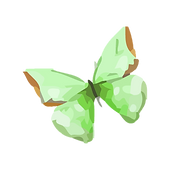American Gods: a theory
- Oct 30, 2019
- 10 min read

(Picture found on Google Images)
I read American Gods by Neil Gaiman for the first time this last year, and while reading it I came to believe that I know the real identity of the main character Shadow. However, my theory never came to light within the text. All my evidence comes from between the lines.
-Big Spoilers-
First of all, American Gods is a long book about what religion means to people in the modern United States and how that religion manifests itself as the actual gods we see interacting within the story. Our main character is not a god, but a bulky man named Shadow who has just gotten out of prison a week early due to the fact that his wife was killed in a car accident. An older man in a pale suit with a tree-shaped tie pin calling himself Wednesday approaches Shadow, offering him a job and informing him that his previous employer died in the car with Shadow's wife. For a time, Shadow does not really understand the world he has fallen into. It is the secretive, metaphorical world of the gods, especially those whose power is very weak after living so long in a country like the United States were belief in them dwindles faster and faster as the years go by. They live as mortals, yet interact with the world in supernatural ways when they have the strength.
The plot of the book focuses on a war that Wednesday (Odin, king of the gods from Norse mythology) has been planning between the old gods like himself and the new gods of media and technology. He got his son Loki involved to help dedicate an entire bloody battle to him, since Odin's power often comes from dedicated bloodshed. Throughout the story we see glimpses of the vaster parts of the gods' world: parts of history where one or another's power was very strong, the secondary reality where gods might keep castles or reveal their true forms, the underbelly of the world where monsters lurk, and the many, many versions of hell or the afterlife that one might face depending on the gods they believed in and encountered in life.
Shadow experiences many things that I think would be very surreal and difficult to understand for someone who does not have a history in mythology. Personally, I felt that I had a pretty easy time picking out clues and references that pointed to the identity of certain characters. Shadow, on the other hand, is supposed to be like the book's main audience: unaware of almost any unusual mythologies. This ignorance makes it easier to see Shadow as someone who as just caught up in the madness and has to find a way to stop it. This is especially true when we discover that Wednesday is Shadow's father and that Shadow's involvement was basically a setup. Fortunately, he is able to cut down on the bloodshed with the help of his wife who came back from the dead. While all this makes for a good, long, and complicated story that I am not really doing justice here, I personally do not think that Shadow is involved simply because he is a demi-god that Odin planted on the scene.
From the very beginning of American Gods, I wondered if the main character Shadow was actually a Native American god in a man's body. More specifically, I believe that Shadow is actually the Raven god of Nuxalk mythology. His name (Shadow Moon), which has a certain Native American feel to it, was my first clue and got me paying attention, along with the name of the book. Not only does it sound like an English tribal name, but it also makes you think of darkness like the color of a raven's wings. A bit obvious perhaps, but that does not mean it does not tie in.
My next clue was when Wednesday decided that certain schemes he had in mind would work better if there was some precipitation, so he commands Shadow (now working for him) to think about rain. After some headache, Shadow thinks the rain into happening. Now, one could attribute this to the fact that we find out later that Shadow is Wednesday's son and Wednesday is also the father of the Norse god of thunder. I think Wednesday certainly attributes Shadow's ability to pray rain into happening to his own superior god genes. However, I think this power also points to Shadow's Native American origins, as a sort of rain dance moment.
Another clue came when Shadow met some Native American gods, who said that Shadow seemed to have a bit of "tribe in him." I am not entirely sure what ethnicity Shadow is supposed to look like, but I always imagined him looking more Native American than anything. Due to his mixed heritage, I do not think it is really important, especially since the other gods might see that "tribe in him" no matter what he looks like. (Also, Shadow knows almost nothing about his diseased mother's family history, compacted by the fact the two of them moved around a lot.) The Native American gods in the story seem to take a special liking to Shadow, perhaps because some part of them know who he truly is.

(Picture found on Google Images)
This is where things get a little complicated, and where I need to tell the most famous story of the raven god. I have here a picture of the book I read as a child that I thought back to while reading American Gods. The story goes that in the first days of humanity, the world was shrouded in darkness. There was no sun because it was kept by the gods in their home: The House of Myths. The raven was one of many creations, though not technically a god, and was the cleverest of all creatures. As it turns out, he was also kind-hearted, because he saw how people suffered in the dark. So, he transformed himself into a pine needle (I have also heard mud) floating on the top of the water that a girl was about to drink. That girl was the daughter of the chief of the House of Myths. When she gave birth to a baby boy later on, no one knew that it was the clever raven in disguise. Everyone doted on him, to the point where they took the sun out of its hiding place and let him play with it. As soon as he had it, the raven turned back into his winged self and flew up into the sky to shine on the world. I have also heard versions where the raven brought water to humanity and turned soot black in his efforts to carry them fire.
In short, the raven is known for being able to be reborn as a creature other than himself and live that way comfortably. This is the biggest reason I suspect that Shadow is the celebrated trickster raven. (Also, as a trickster god himself, it seems appropriate that his human form is the half-brother of Loki the trickster god of Norse mythology.) Is it such a stretch to think that the raven does not always remember putting himself into a human body? Or chooses not to remember?
(As a side note, the idea of the House of Myths and other notions of where gods live is also a common theme in American Gods. To the gods, the world around them seems to be something of an illusion hiding their true forms, the underlying mystical worlds, and the otherworldly places overlapping with holy places where they hold meetings. Even the definition of a "holy place" is brought into question, as it is pointed out that churches are where people go because they are supposed to, but roadside attractions are where they go out of an unknown compulsion. It makes sense that a book about so many different mythologies would not choose just one idea about where gods go. Buddhists say everything is temporary, Hindus say everything is an illusion, the ancient Greeks said there were worlds above and below our owns, Norse mythology says we are part of the world tree, Nuxalk mythology says the House of Gods was where the creators lived...)
One very mysterious part of the book is when Shadow dies and goes to the afterlife. Basically, when Wednesday is killed by the new technology gods, Shadow is held to a promise he made as Wednesday's employee to stand vigil over him. This vigil involves being tied to a specific tree that represents the world tree Yggdrasil of Norse mythology and hanging there for over a week. He is not expected to survive, and only continues on in the story because the goddess of Easter (another old god whose true past has been mostly forgotten by modern society) comes to resurrect him. Anyway, Shadow finds himself walking through the strange world beyond, where he meets gods who he encountered on previous adventures, such as a moon goddess. Due to his involvement with some of the Egyptian gods, he is led most of the way by Bastet the cat goddess, his judgment is overseen by Thoth the ibis-headed god, and his ultimate sentencing carried out by Anubis the jackal-headed god. He chooses to rest for eternity, only to have it all spoiled when he is resurrected. What I really want to talk about here is that at one point during his descent to the judgment room, Shadow is told that he can only continue if he consents to forget who he truly is. Since Shadow has never really known much about himself anyway, he barely hesitates and goes on. This scene is significant because nowhere else in the book is it referenced that Shadow might have another self to know. Do they just mean he will never know the secrets about himself? Or do they mean he will never know everything he could be? If we stick to the theory that Shadow is actually the raven god in a state of amnesia in his human form, then the pieces fall into place. Shadow has unknowingly consented to forget about being a god and instead simply be a dead human (one who will come back to life later). This decision is permanent. At first this might seem a bit sad, since Shadow seems to be missing out on life as a god. However, I actually think it is quite appropriate for the character.

The Egyptian myth regarding Anubis (jackal) the guide, Thoth (ibis) the scribe, and the monster that would eat your heart if it failed to compare well to the feather of truth on the scales.
(Picture found on Google Images)
Before I go into that, I would like to circle back around. There are other instances of Shadow using supernatural powers besides praying for rain. (Again, the act of praying for rain could be interpreted as enhancing an ability of Wednesday's rather than his own.) We see that Shadow has supernatural abilities of his own that are never really explained. This is one of the last two big clues as to the nature of Shadow's character, and therefore his true identity, comes at the end of the book. There is an important part where Shadow decides to kill another god to prevent the deaths of young sacrifices that have been keeping a small town alive and vibrant for generations. After killing the god with the help of the town's traumatized sheriff, Shadow experiences two things: a taste of his own powers and the rejection of the Native American gods who previously favored him.
The powers come when Shadow reaches into the mind of the sheriff and edits his memories just enough to spare him the knowledge that his town had been sustained by the disappearances, and deaths, of the teenagers who went missing every year. (This whole section of the book is especially good and actually feels a bit like Stephen King's work.) The text states that Shadow does without a second thought as to how he is able to do it; he just is. Within this same time frame, Shadow has a vision of the Native American gods he met before giving his disdainful looks and turning away. At first I was very shocked by this scene; if he is a Native American god, or even if he is not, why would they react to him in this way? After some thought, I realized that it actually makes a lot of sense with Shadow's character as the raven.
While the raven myth has always been important to the Nuxalk people in terms of humanity, he was not well-liked by his fellow creatures and gods. Few people like a trickster if his tricks do not benefit you. Like Prometheus in Greek mythology, the raven uses his talents for the good of humanity rather than that of the gods. Like Prometheus, he stole the all important light and fire that the gods had wanted to keep for themselves. By killing another god, Shadow is, in a way, turning his back on all the old gods struggling to survive in a country and a world that barely believe in them anymore. The Native American gods seem to be doing okay for themselves, but they are still part of the old world traditions and are in no way living in mansions. They turn their backs on Shadow because he has chosen humanity rather than the "tribe," whether that means the family of the Native American gods or the larger family of old gods. It is never clear exactly how much they saw in him.
Finally, I will mention that within Norse mythology the raven or crow plays a key role as one of the symbols of Odin, since he is often accompanied by two of them. One could argue that the second crow is shape-shifter Loki, Shadow's half brother who also plays a big role in bringing about the climax.
To me, American Gods is Neil Gaiman's modern story of the raven god who planted himself in the position to be born as Odin's son and make some mischief. He is paralleled by Loki here and there as they share a prison cell, then turn out to be half-brothers caught up in Odin's plans. Other gods are drawn to him for various reasons and he adapts to the oddities that continually crop up without much of a struggle. He cares about humanity despite the heartbreak and difficulties he has been through, and does what he can to make their lives better. And, best of all, the story takes on deeper meaning when you realize that there may be this entire story of the raven underneath, driving everything and making Shadow's occasionally odd actions possible. I think Neil Gaiman was smart to keep Shadow's true origins a secret because they may have added yet another confusing layer to an already convoluted story including a huge cast of characters and cameo appearances.

(Picture found on Google Images)
Odin, Loki, Bastet, Thoth, Anubis, Ra, Anansi, Czernobog, Zorya Polunochnaya, Zorya Utrennyaya, Zorya Vechernyaya, Wisakedjak, Kali, Easter, Hades...





























Comments